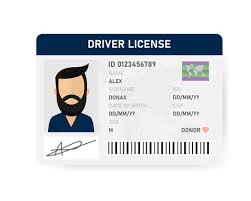college students
Introduction
The college experience is a pivotal stage in a student's life. It is a time of exploration, growth, and learning, not only within the confines of academic disciplines but also in developing the essential life skills necessary for success after graduation. While academia plays a central role in shaping future professionals, there are other facets of college life—time management, financial planning, networking, leadership development, and personal well-being—that are equally crucial for a student's holistic development.
This article will serve as an essential resource for college students navigating the complexities of university life, providing in-depth analysis, practical strategies, and motivational insights. From maximizing academic success to developing lifelong skills, we will explore how students can seize opportunities to prepare for both personal and professional fulfillment.
Chapter 1: Academic Success: Laying the Foundation for Future Achievement
1.1. Effective Study Habits
The backbone of college success lies in the ability to effectively absorb and retain large volumes of information. Developing effective study habits is crucial for academic achievement.
- Active Learning Techniques: Instead of passively reading textbooks, college students should engage in active learning strategies. This includes summarizing chapters, teaching concepts to peers, or applying knowledge to real-world problems.
- Time Blocking for Productivity: Organizing study sessions into manageable chunks, often referred to as time blocking, allows students to focus on specific tasks without being overwhelmed.
- Utilizing Campus Resources: Most colleges offer numerous academic resources, from tutoring centers to online databases and faculty office hours. Leveraging these resources can significantly improve academic performance.
1.2. Balancing Coursework and Extracurriculars
A well-rounded college experience isn’t limited to excelling academically. Participation in extracurricular activities contributes to personal growth and helps students develop leadership skills.
- Setting Priorities: Students must learn to prioritize their academic work while balancing extracurricular activities. Making use of planners or scheduling apps can help track assignments and other responsibilities.
- Incorporating Passions: Joining clubs and organizations aligned with personal passions can enrich the college experience without detracting from academic responsibilities.
Chapter 2: Personal Development: Building a Strong Identity
2.1. Self-Reflection and Goal Setting
College is the perfect time for students to reflect on their values, interests, and long-term goals.
- Developing a Growth Mindset: Encouraging students to adopt a growth mindset ensures they view challenges as opportunities to improve rather than insurmountable obstacles. This resilience is key to success both in college and later in life.
- SMART Goals: Setting Specific, Measurable, Achievable, Relevant, and Time-bound (SMART) goals helps students track progress and stay motivated throughout their college journey.
2.2. Time Management Skills
The ability to manage time effectively is one of the most valuable skills a student can develop.
- The Eisenhower Matrix: This decision-making tool helps students categorize tasks based on urgency and importance, enabling them to focus on high-priority activities first.
- Combating Procrastination: Procrastination is a common challenge for students. Techniques like the Pomodoro Method or setting short-term rewards for completing tasks can boost productivity.
Chapter 3: Financial Literacy: Managing Your Money Wisely
3.1. Budgeting on a College Student's Income
College often marks the first time students have full control over their finances, making budgeting a crucial skill.
- Creating a Realistic Budget: Students should track their income (from part-time jobs, scholarships, or parental support) and expenses (such as rent, textbooks, and personal spending). Apps like Mint or You Need A Budget (YNAB) can help students stay on track.
- Avoiding Common Pitfalls: Overspending on unnecessary items or living beyond one’s means can lead to financial stress. Learning to distinguish between needs and wants can prevent debt accumulation.
3.2. Saving for the Future
Developing saving habits in college can lead to financial independence and security later in life.
- The Power of Compound Interest: By saving small amounts early, students can take advantage of compound interest over time. Encouraging them to open savings accounts or contribute to a Roth IRA can set them on the right path.
- Emergency Fund: Setting aside money for unforeseen circumstances can prevent unnecessary reliance on credit cards or loans.
Chapter 4: Health and Well-Being: Thriving in Body and Mind
4.1. Mental Health Awareness
College students often face stress related to academic pressures, social changes, and financial concerns. Addressing mental health is key to maintaining a balanced college experience.
- On-Campus Counseling Services: Many universities offer free or low-cost mental health services to students. It’s essential to destigmatize seeking help and normalize using these resources.
- Self-Care Practices: Techniques such as mindfulness, meditation, and physical exercise can help alleviate stress and maintain a healthy mental state.
4.2. Physical Health and Nutrition
A healthy body contributes significantly to academic performance and overall well-being.
- Balanced Diet: Busy college schedules can lead to poor eating habits. Teaching students the importance of a balanced diet—rich in fruits, vegetables, and whole grains—can prevent long-term health issues.
- Exercise Routines: Incorporating physical activities into daily routines, whether it’s jogging, swimming, or even walking to class, helps maintain physical fitness and reduces stress.
Chapter 5: Networking and Career Development
5.1. Building a Professional Network
Networking is essential for career development, and college presents countless opportunities to meet like-minded individuals, professors, and professionals.
- Utilizing Career Services: Most colleges have dedicated career services departments that can assist with resume building, mock interviews, and connecting students to internships and job opportunities.
- LinkedIn and Social Media: Encouraging students to create a professional LinkedIn profile early in their college career allows them to connect with potential employers and peers in their field.
5.2. Internships and Job Experiences
Gaining practical experience while still in college is crucial for career readiness.
- The Value of Internships: Internships offer hands-on learning opportunities that can set students apart in competitive job markets. Students should explore internship programs related to their major or future career interests.
- Part-Time Jobs and Volunteering: Even if internships aren’t available, part-time jobs and volunteer experiences can help build a strong work ethic, develop soft skills, and demonstrate initiative.
Chapter 6: Campus Life: Embracing the College Experience
6.1. Social Integration and Building Relationships
College is a time to build lifelong friendships and expand one’s social circle.
- Joining Clubs and Societies: Being part of student organizations not only fosters social connections but also develops leadership and teamwork skills.
- Living in Dorms or Shared Housing: On-campus living offers the chance to interact with peers, enhancing both social and academic experiences.
6.2. Dealing with Homesickness
For many students, college represents their first time living away from home. Homesickness is common and can be challenging to manage.
- Staying Connected: Regular video calls with family and friends can ease feelings of isolation, while engaging in campus activities can help students form new connections.
- Creating a Home Away from Home: Decorating dorm rooms with familiar items or photos can provide comfort and make students feel more at ease in their new environment.
Chapter 7: Leadership Development: Becoming a Leader on Campus
7.1. Opportunities for Leadership
Colleges provide numerous opportunities for students to develop leadership skills, whether through student government, academic clubs, or athletics.
- Taking Initiative: Encouraging students to step up and take leadership roles in projects or organizations can significantly boost confidence and responsibility.
- Teamwork and Collaboration: Understanding how to work effectively within a team is an invaluable skill in both academic and professional settings.
7.2. The Long-Term Benefits of Leadership
Leadership experience gained in college can open doors in future careers and provide the foundation for lifelong success.
- Transferable Skills: Leadership positions teach students about conflict resolution, time management, and communication, all of which are highly sought after in the workforce.
- Networking Opportunities: Being in leadership roles often brings students into contact with faculty, administrators, and external professionals, expanding their network.
Conclusion
College is a transformative journey that equips students with the knowledge, skills, and experiences they need to thrive in an increasingly complex world. While academic success is vital, students must also focus on personal development, financial literacy, mental and physical well-being, and leadership skills. By taking a holistic approach to their education, college students can emerge as well-rounded individuals ready to tackle the challenges of the modern workplace and make meaningful contributions to society.
Empowering college students with the right tools and mindset is essential for their success, both during their academic years and as they transition into their professional lives. The future belongs to those who not only excel in their studies but also cultivate the soft skills, resilience, and vision required to lead in an ever-changing world.
 legal risks of fake IDs
legal risks of fake IDs
 Best fake ID features
Best fake ID features
 Target Audience
Target Audience
 photo ID software
photo ID software
 Texas Fake ID Benefits
Texas Fake ID Benefits
 Fake Georgia ID
Fake Georgia ID
 Student ID Card
Student ID Card
 Authentic-looking ID
Authentic-looking ID
